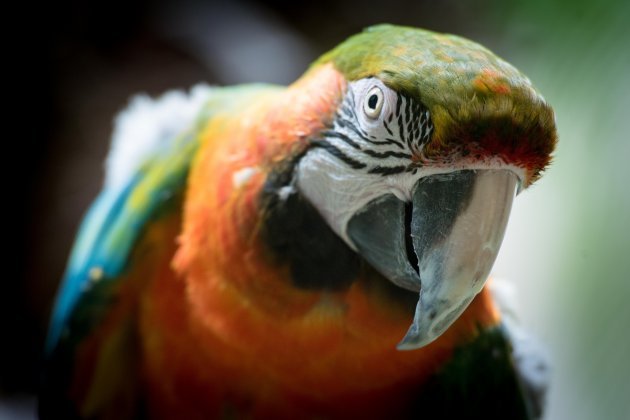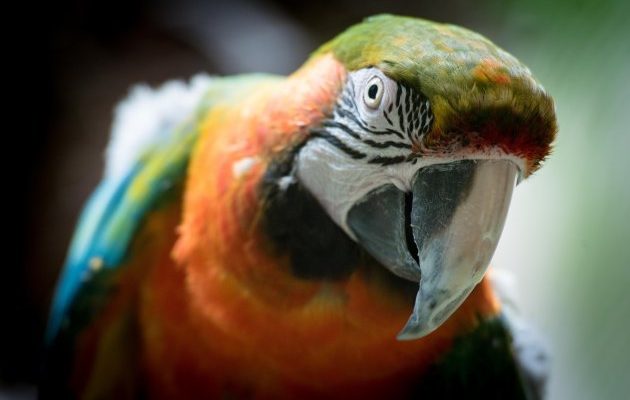
Imagine having a lively conversation with a friend, and suddenly, a bright blue and yellow bird flaps onto your shoulder. A macaw can bring a unique kind of energy into your home, but it’s essential to consider the demands they’ll make on your time and resources. Just like any other pet, they need proper care, attention, and understanding. Here’s what you need to know about the pros and cons of having a macaw as a pet.
The Allure of Macaws: What Makes Them Special?
If you’ve ever seen a macaw in action, you know how mesmerizing they can be. With their striking colors and playful antics, they capture the hearts of many. What makes them truly special, though?
- Intelligence: Macaws are highly intelligent birds. They can learn to mimic words, phrases, and even sounds from their environment. This intelligence can lead to great bonding moments, as they often engage in social interactions.
- Personality: Each macaw has a unique personality. Some are quirky and silly, while others are more laid-back. This range is part of what makes owning one so rewarding. You might find that your macaw has a sense of humor that keeps you entertained.
- Lifespan: Macaws are long-lived pets, often living 50 years or more. This means when you bring one into your home, you’re in it for the long haul, which can foster a deep bond over the years.
Macaws thrive on social interaction and love being the center of attention. If you enjoy a vibrant, lively atmosphere, they might just fit right into your lifestyle.
The Time Commitment: Are You Ready?
Now, here’s the thing—macaws require a *lot* of time and attention. If you’re considering bringing one home, you need to ask yourself: are you ready for the commitment?
First off, macaws are social creatures and get lonely if left alone for long periods. They require daily interaction and stimulation. So, if you’re someone who spends long hours away from home, this might not be the best fit for you.
- Daily Interaction: You should spend at least 3-4 hours each day interacting with your macaw. This doesn’t just mean feeding them; you’ll need to engage with them through play, training, and conversation.
- Enrichment Activities: Macaws need mental stimulation to keep them happy. Providing toys, puzzles, and opportunities to explore their environment are essential for their well-being.
- Training: Owning a macaw comes with the responsibility of training. A trained macaw can be a joy to have around, but it requires patience and consistency.
If you’re up for the challenge, the rewards can be significant. Just remember that bonding with a macaw is not a quick process; it takes time and patience.
Space Requirements: Do You Have Room for a Macaw?
Macaws are big birds, and they need space to spread their wings—literally! Before getting one, consider whether you have enough room in your home.
Living Environment
- Large Cage: Macaws need a spacious cage—ideally, at least 3 feet wide, 3 feet deep, and 5 feet tall. This allows them enough space to move around comfortably.
- Safe Space to Fly: Besides their cage, they require a safe area to fly around your home. Regular exercise is crucial for their physical and mental health.
- Quiet Zones: Macaws can be quite loud when they want to be, so having a separate, quiet area for them can help maintain peace in your home.
If you live in a small apartment or don’t have access to an open space, it could be challenging to keep a macaw. They thrive on freedom, so be sure you’re ready to provide that.
The Cost of Ownership: Budgeting for a Macaw
Let’s talk money. Owning a macaw is an investment, not just in terms of the initial purchase price but also ongoing costs. Are you prepared for the financial commitment?
- Purchase Price: Macaws can cost anywhere from $1,000 to $3,000 or more, depending on the species. This upfront cost is just the beginning.
- Food and Supplies: Macaws require a balanced diet, including seeds, fruits, and vegetables. Plus, you’ll need toys, a cage, and other supplies, which can add up quickly.
- Veterinary Care: Regular check-ups and potential emergency care can also become a significant part of your budget. Make sure to set aside funds for veterinary expenses.
Understanding these costs before bringing a macaw home is essential. You want to ensure you can provide for them throughout their long lives.
Socialization and Bonding: Connecting with Your Macaw
Macaws are highly social animals and need to feel connected to their human companions. Building that bond takes time, but it’s a rewarding journey.
- Routine Interaction: Make a habit of spending quality time with your macaw daily. This can include talking, playing, or simply being in the same room.
- Positive Reinforcement: Use treats and praise to reward good behavior. This method can help with training and deepening your bond.
- Understanding Body Language: Learning to read your macaw’s body language is key. They communicate their feelings through their posture and vocalizations, so paying attention to these cues can enhance your relationship.
As you nurture your connection with your macaw, you’ll likely find that they can become a cherished member of your family.
Final Thoughts: Is a Macaw Right for You?
In the end, owning a macaw can be a beautiful experience filled with laughter and companionship, but it comes with responsibilities. You might be wondering if the pros outweigh the cons for your lifestyle.
If you’re ready to commit time, space, and resources, a macaw can bring immense joy to your life. They’re not just pets; they’re companions who will need your attention and care. So, take some time to reflect on your situation. Are you prepared for the love and effort required?
Owning a macaw is like entering a vibrant, colorful world—one filled with challenges and rewards. If you think you can provide the right environment and care, a macaw might be the perfect addition to your home.

